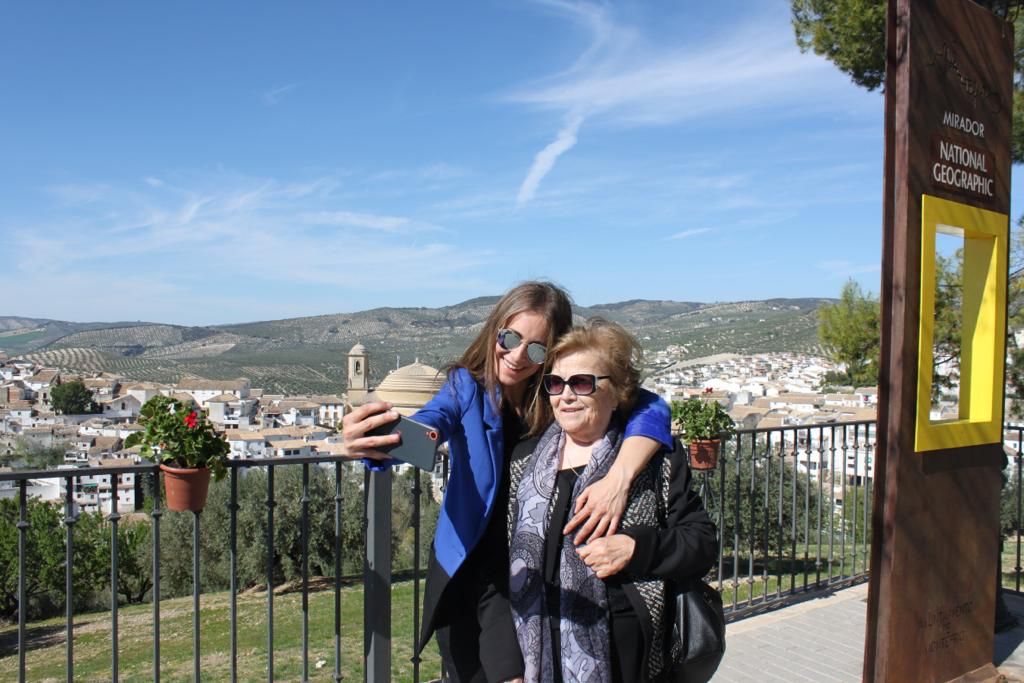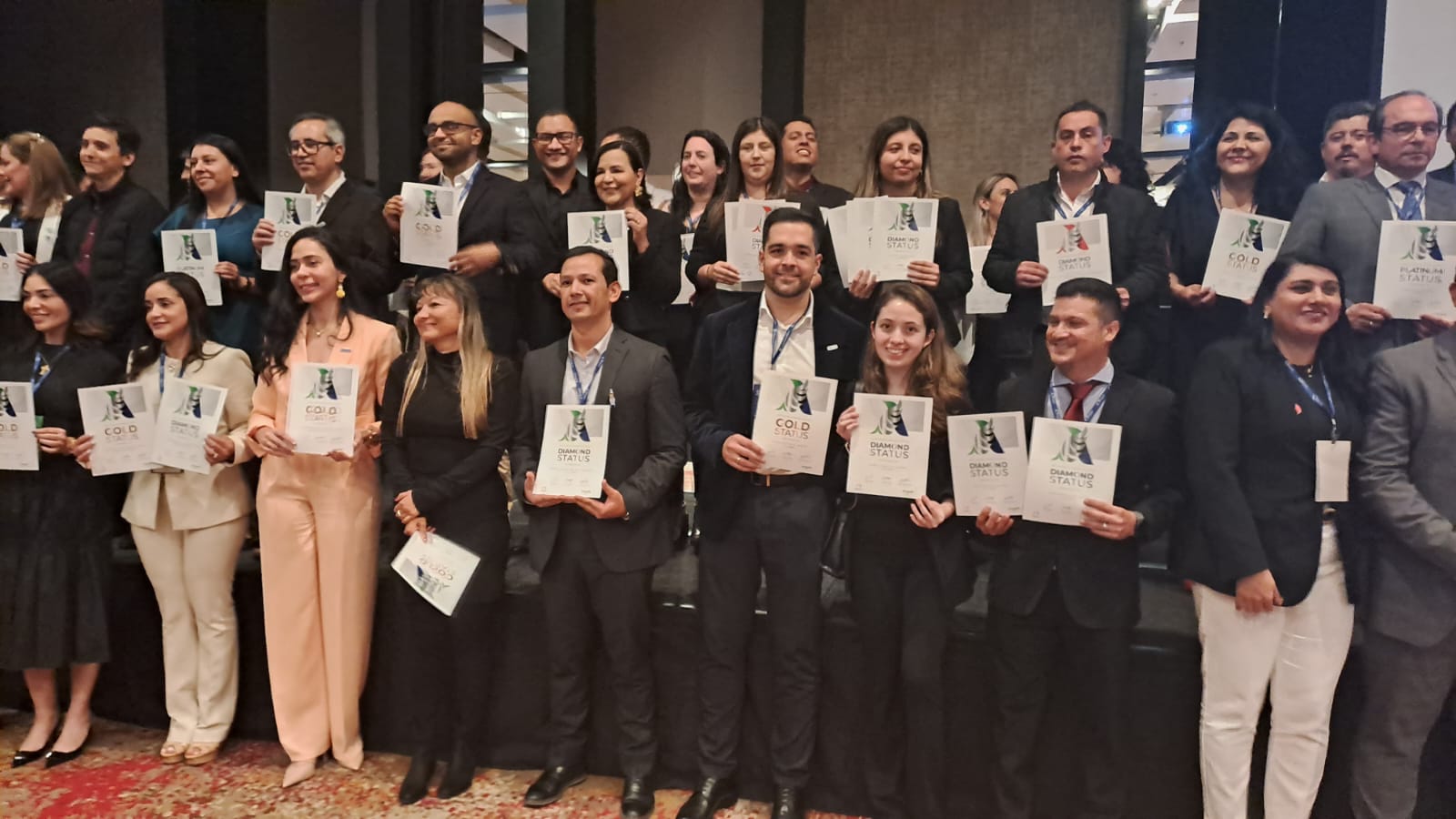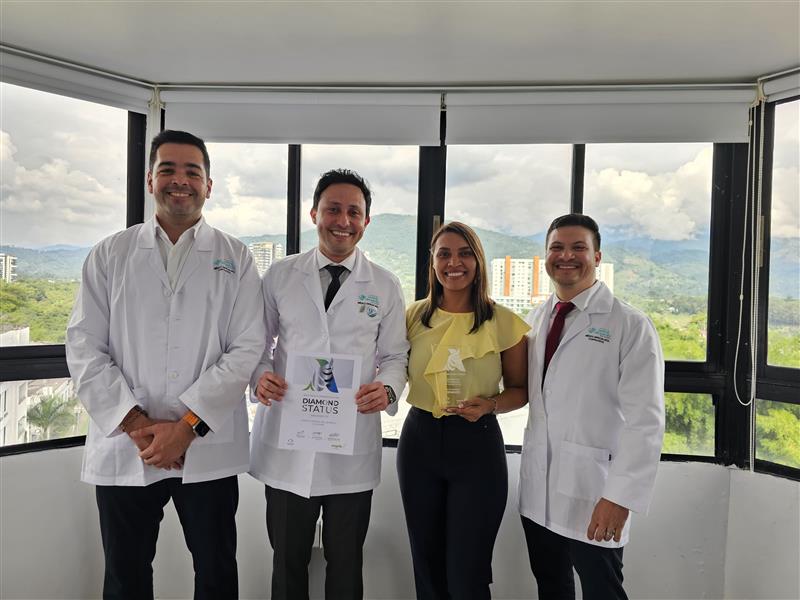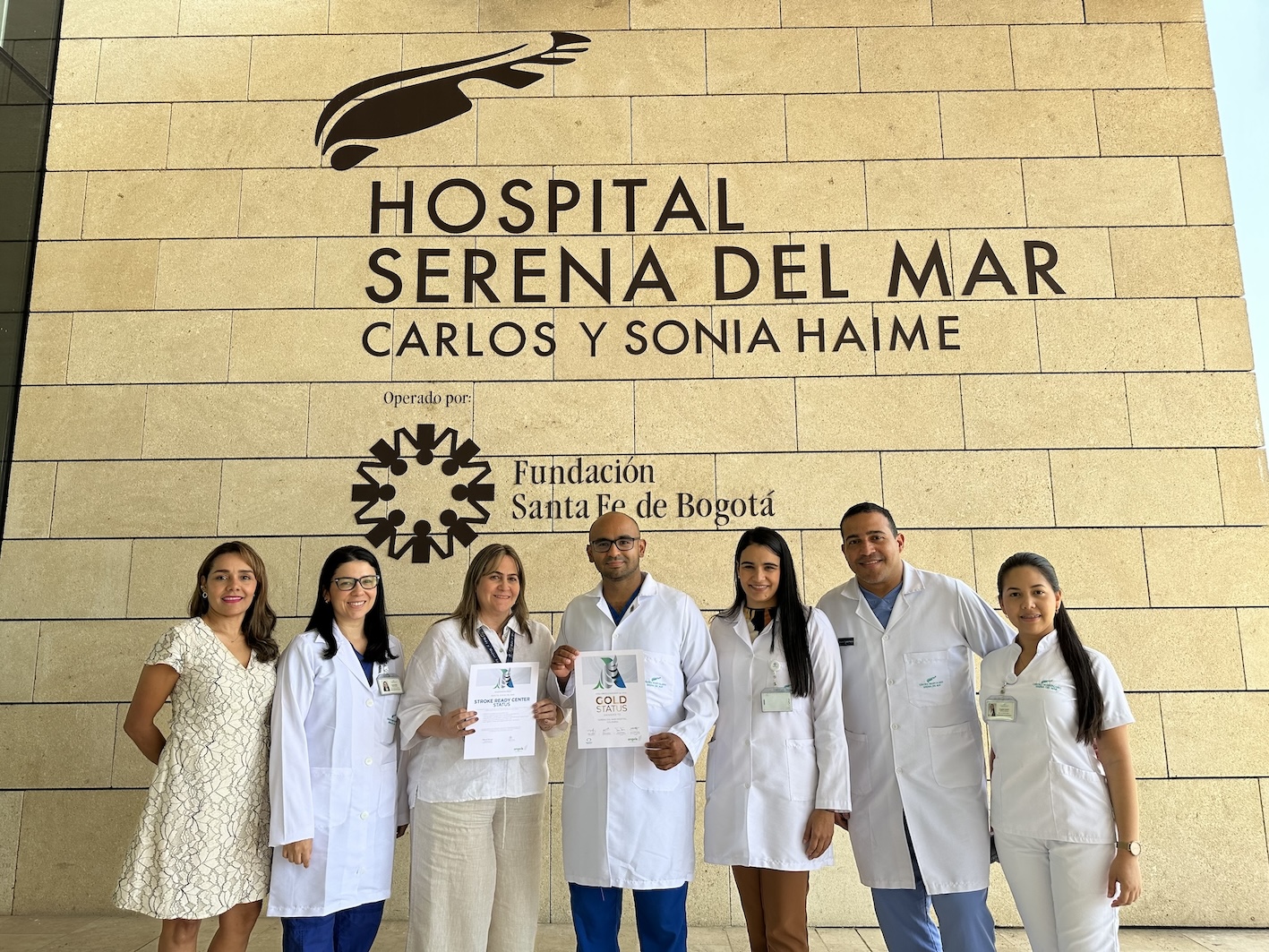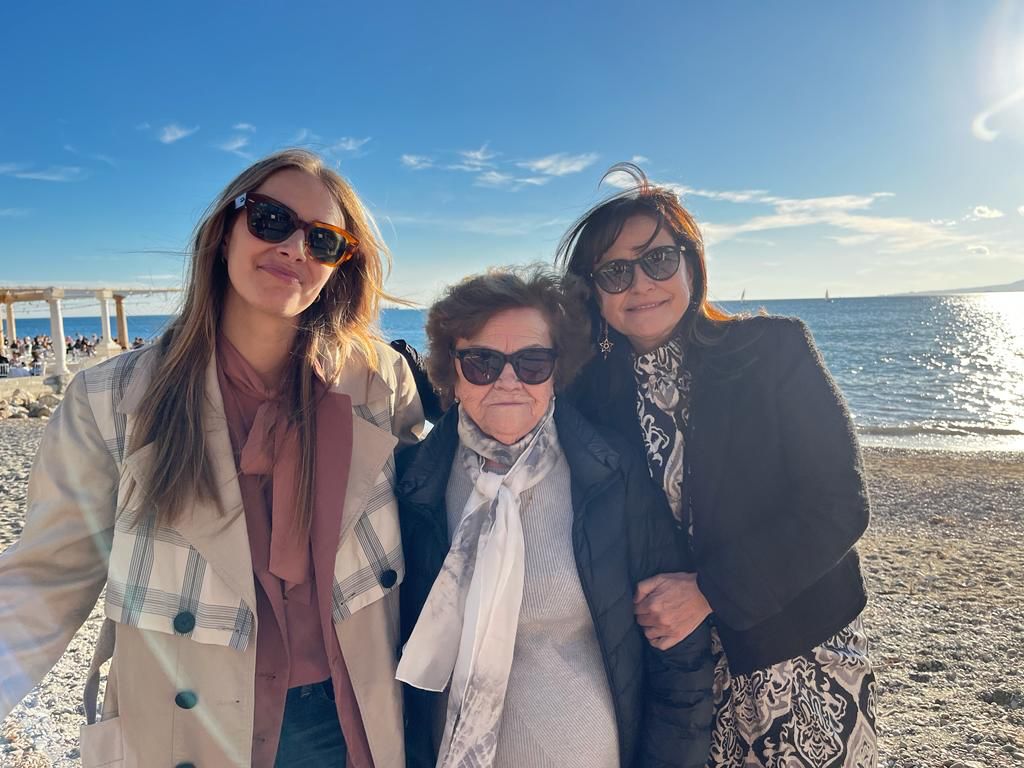
Quando a avó Paquita foi para casa após 12 dias no hospital, a escala da tragédia foi capturada numa única nota no relatório de alta: “Se a sua condição piorar, não a traga de volta.”
Doze dias antes, Paquita, de 89 anos, estava cheia de vida e amor, dos quais havia muita coisa. Os seus seis filhos a abençoaram com 11 netos e cinco netos. Eles, e todos na sua aldeia na província de Málaga, no sul de Espanha, conheciam o seu coração amável e que não havia um osso malicioso no seu corpo.
Para Alicia Arjona, a consultora Angels para a Andaluzia, a avó Paquita era o seu próprio anjo.
“Ela é a melhor pessoa que conheço”, diz Alicia, “e para mim, ela é a minha segunda mãe. Sempre foi a minha mãe, a minha avó e eu – desde a infância. Estávamos super próximos, só nós os três.”
Apenas algumas semanas antes, a família alargada tinha celebrado o seu 89.o aniversário com um banquete alegre que Paquita tinha ajudado a preparar. Além de ser um motivo para celebrar, 89 era apenas um número, e um Paquita desafiava a sua independência, energia e espírito jovem.
Mas depois de um AVC cerebelar ter interrompido o fornecimento de sangue a uma parte pequena, mas vital, do seu cérebro, o número 89 tornou-se um bloqueio, um ponto de dados que informou uma decisão crítica, após a qual tudo se agravou de forma estável.
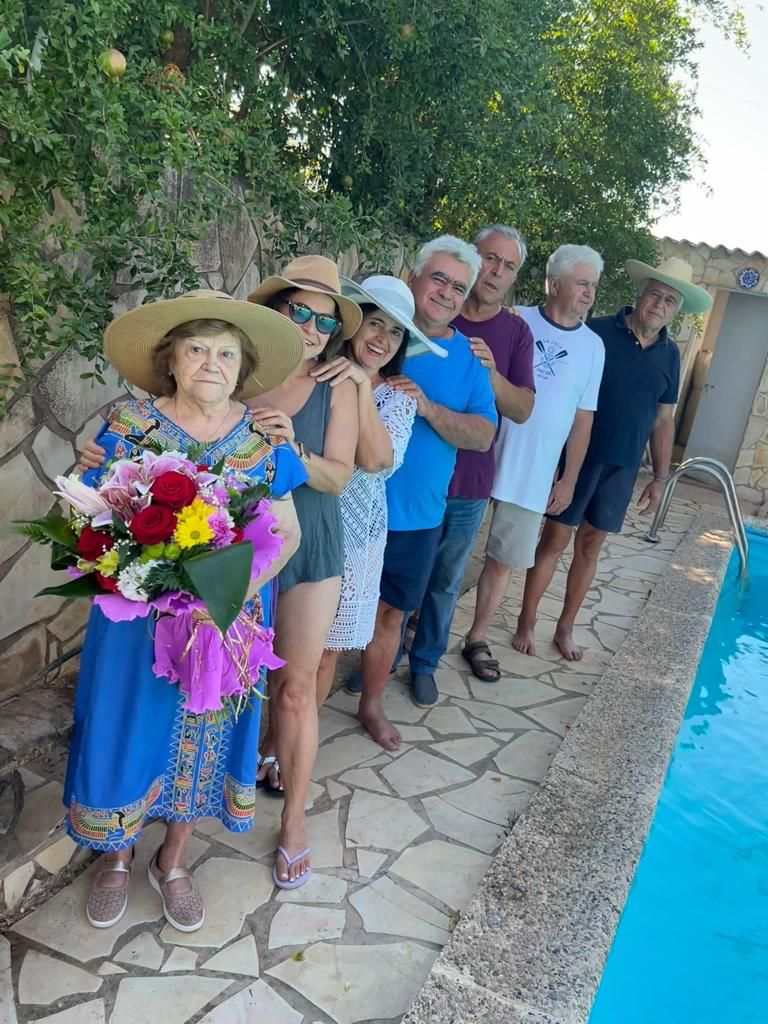
Um pesadelo desenrola-se
Embora fosse um sábado, Alicia estava no trabalho quando a mãe Josefa ligou para dizer que a avó Paquita tinha tido um AVC. “O meu mundo começou a desmoronar,” recorda. Para piorar as coisas, o hospital onde Paquita foi internado, embora nominalmente pronto para AVC, foi um hospital que se tinha recusado a trabalhar com a Angels para melhorar os seus cuidados de AVC. O coordenador de AVC tinha repetidamente rebatido as ofertas de Alicia para ajudá-los a otimizar a sua via hiperaguda; os enfermeiros não mostraram interesse em elevar o padrão de cuidados pós-agudos.
Durante vários dias, Alicia examinaria obsessivamente a sua decisão de não tratar a sua avó com trombólise, com base no facto de ela ter estado a tomar anticoagulantes para os quais não havia antídoto. Ela diz: “Fui consumida pela possibilidade de não a terem tratado devido à sua idade.”
Entretanto, estava a surgir um pesadelo pós-agudo para a família da Avó Paquita.
Como não se esperava que Paquita sobrevivesse ao seu AVC, foi transferida para o departamento de medicina interna, onde poderia estar rodeada pela sua família. Seria uma questão de horas, disseram os médicos.
Quando Paquita teimosamente agarrou à vida, Alicia esperava que fosse realocada para uma unidade onde os cuidados de enfermagem especializados pudessem mitigar o impacto do AVC e prevenir complicações. Mas as camas das unidades de AVC estavam reservadas para doentes mais jovens e para aqueles que tinham sido submetidos a recanalização, e a avó Paquita tinha 89 anos.
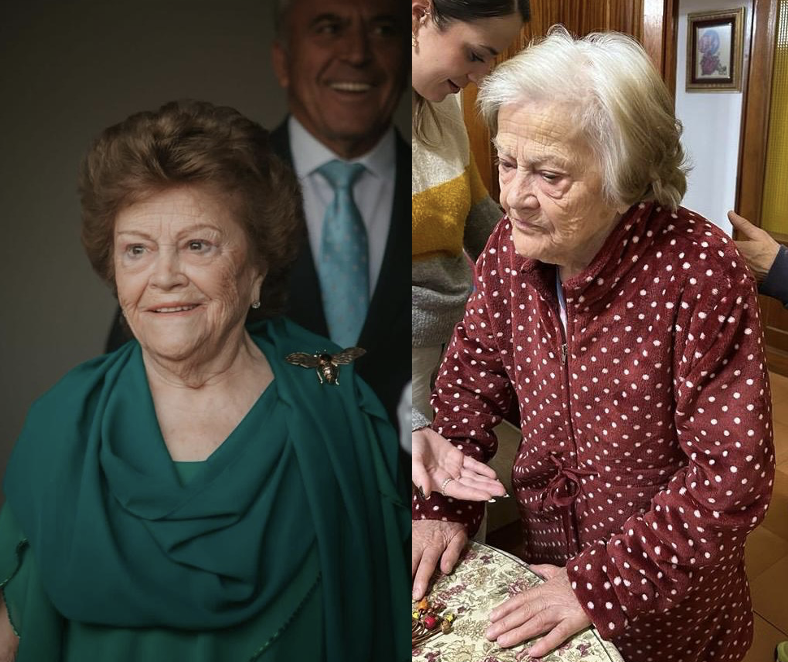
Fazer o que for preciso
No serviço de medicina interna onde a Paquita se encontrava agora, não havia protocolo FeSS para monitorizar febre, açúcar e deglutição, sem avaliação neurológica, sem atenção ao ângulo do leito, sem antiplaquetas para prevenir um segundo AVC, sem vigilância da pressão arterial do doente. Incapaz de persuadir o pessoal a sair do negócio como habitualmente, uma Alicia cada vez mais frenética colocou em ação a primeira regra da Angels: fez o que fosse preciso para dar uma oportunidade à vida da sua avó.
Ao longo dos próximos 10 dias, Alicia e Cristina, uma prima jovem que se tinha tornado recentemente enfermeira, criaram uma unidade de AVC virtual à volta da cama da sua avó. A Alicia apresentou os procedimentos e listas de verificação correctos contra a parede e na mesa sobre a cama. Procurou um glicosímetro que usou para formação de simulação e orientou Cristina a monitorizar a glicemia de Paquita a cada quatro horas. Interrompeu furiosamente uma enfermeira que estava a colocar gelatina comercial na boca da avó e correu até à farmácia para comprar espessante para um teste de disfagia. Depois de um membro do Comité Diretivo de Enfermagem Anadalusivo os ter ajudado a realizar um rastreio de teledisfagia, Alicia explicou as necessidades de entrega de alimentos de Paquita ao resto da família.
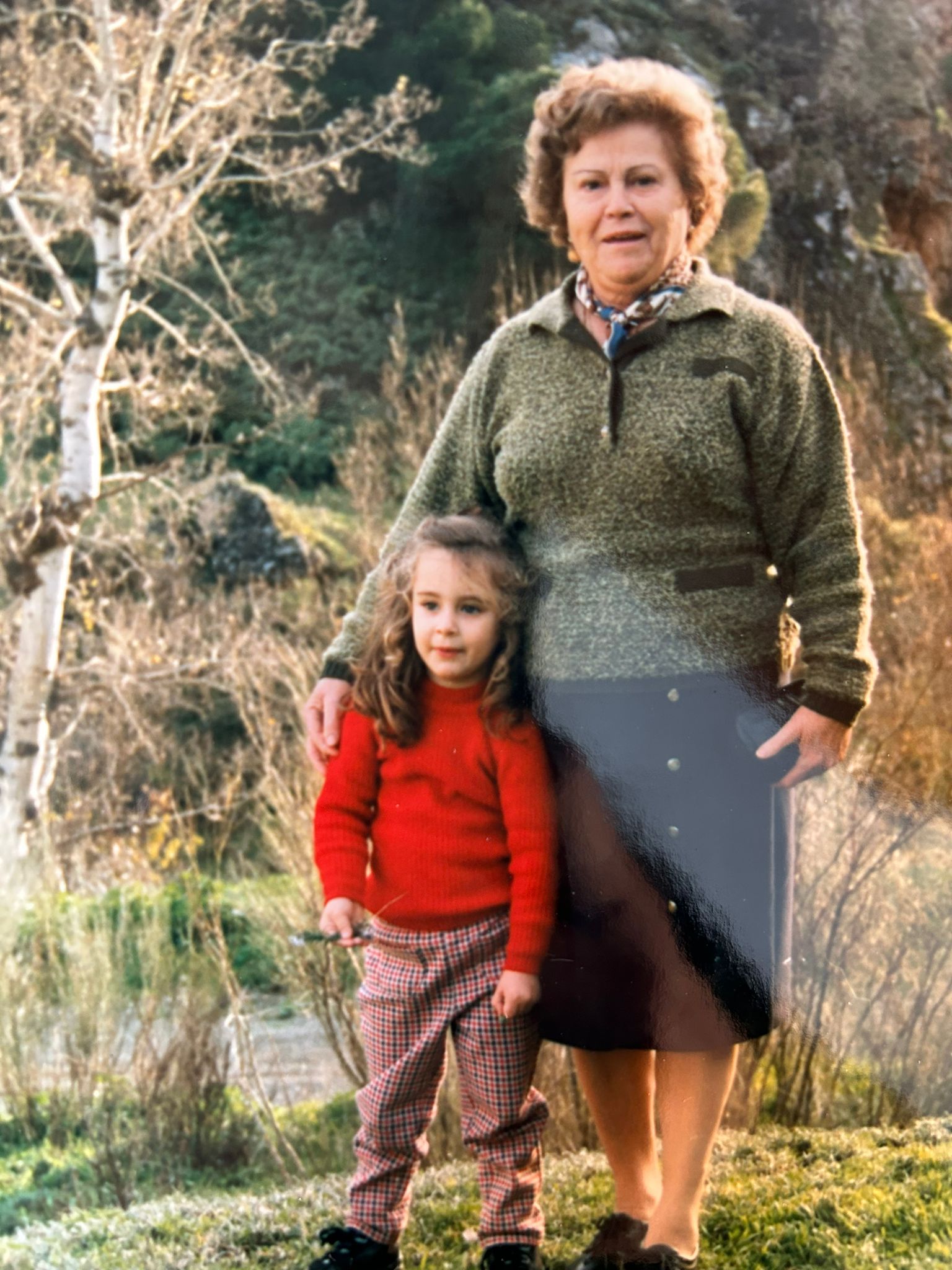
Mad e triste
Se os enfermeiros na enfermaria não acolhessem as intervenções de Alicia, ela simplesmente não se importava. Quando insistiram que nunca tinham tido um caso de penumónia por aspiração como resultado de disfagia, ela declarou que a sua avó não seria a primeira. Quando um médico sugeriu que poderia ser melhor libertar-se, resolveu que não seria como resultado de lhe ter sido dada água que não conseguia engolir.
“A minha avó estava a sofrer,” afirma. “Não ia permitir que fizessem algo apenas para evitar uma luta.”
Deixou-a zangada e triste por a avó ter sido tratada de forma diferente se não fosse pela idade dela. “Acabaram de ver outro corpo velho,” diz Alicia. “Foi a coisa mais dolorosa.”
Mas mais dor estava para vir.
A 12 de junho, dois dias depois de ter sido internada no hospital, Paquita apresentou os mesmos sintomas que tinha tido o AVC. No entanto, não foi realizada avaliação neurológica e não foi pedida TC. Em vez disso, ela recebeu medicamentos para aliviar as náuseas. Cinco dias depois os mesmos sintomas reapareceram. Foi sábado, e dessa vez o médico não atendeu as ligações.
No dia da alta no dia 22 de junho, uma TC confirmou uma transformação hemorrágica e um AVC secundário noutra parte do cérebro. O dano foi imenso.
Em seguida, foi adicionada uma nota ao formulário de alta: “Se a sua condição piorar, não a traga de volta.”
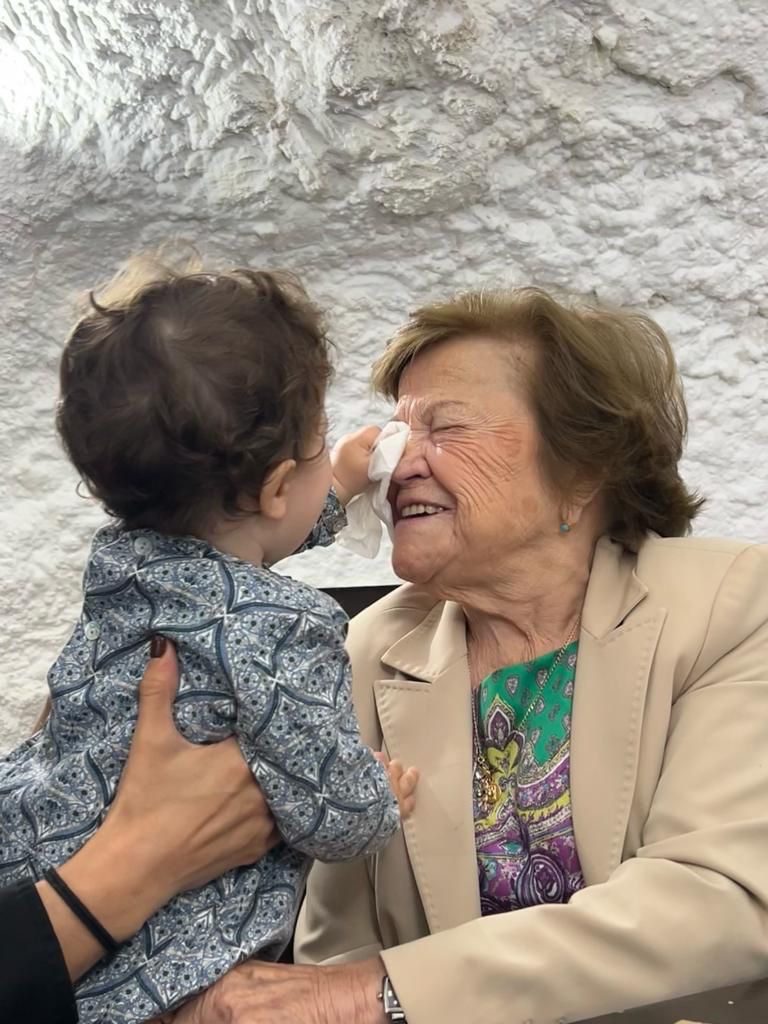
Forro prateado
Josefa e Alicia ainda visitam a casa de Paquita, mas ela mal sabe onde está ou quem são. Embora sobreviva por enquanto, Josefa já perdeu a mãe e Alicia perdeu o anjo. Ela diz: “Ela já não é minha avó.”
Determinada a encontrar um forro prateado, Alicia menciona a sua gratidão à comunidade Angels em Espanha, que a segurava nos seus corações e mãos ao longo do ordeal. E nunca foi tão convencida da necessidade da Angels: “Agora tenho outro exemplo de quão frágeis são as vidas dos doentes de AVC e quão importante é o nosso trabalho para os ajudar.”
Os médicos e enfermeiros do hospital não viram a última neta de Paquita. Ela diz: “Quero que este hospital receba formação para que ninguém sofra da mesma forma. Terão de se juntar à rede de teleAVC e ao comité de direção, e terão de concordar em trabalhar com a Angels no seu protocolo e caminho.”
Espera poder alavancar a sua empatia incentivando-os a imaginarem-se no papel da família de um doente com AVC. Espera convencê-los de que são aliados deles e que a sua intenção é ajudá-los a melhorarem o que fazem. O que ela não pretende fazer é dar-lhes uma escolha.
Ela diz: “Não conseguirão dizer não.”
